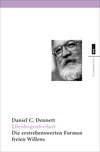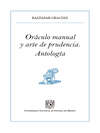Kitabı oku: «Classic French Course in English», sayfa 7
It will be interesting and instructive to see Pascal's own statement of his reasons for adopting the bantering style which he did in the "Provincial Letters," as well as of the sense of responsibility to be faithful and fair, under which he wrote. Pascal says:—
I have been asked why I employed a pleasant, jocose, and diverting style. I reply… I thought it a duty to write so as to be comprehended by women and men of the world, that they might know the danger of their maxims and propositions which were then universally propagated.... I have been asked, lastly, if I myself read all the books which I quoted. I answer, No. If I had done so, I must have passed a great part of my life in reading very bad books; but I read Escobar twice through, and I employed some of my friends in reading the others. But I did not make use of a single passage without having myself read it in the book from which it is cited, without having examined the subject of which it treats, and without having read what went before and followed, so that I might run no risk of quoting an objection as an answer, which would have been blameworthy and unfair.
Of the wit of the "Provincial Letters," their wit and their controversial effectiveness, the specimens given will have afforded readers some approximate idea. We must deny ourselves the gratification of presenting a brief passage, which we had selected and translated for the purpose, to exemplify from the same source Pascal's serious eloquence. It was Voltaire who said of these productions: "Molière's best comedies do not excel them in wit, nor the compositions of Bossuet in sublimity." Something of Bossuet's sublimity, or of a sublimity perhaps finer than Bossuet's, our readers will discover in citations to follow from the "Thoughts."
Pascal's "Thoughts," the printed book, has a remarkable history. It was a posthumous publication. The author died, leaving behind him a considerable number of detached fragments of composition, first jottings of thought on a subject that had long occupied his mind. These precious manuscripts were almost undecipherable. The writer had used for his purpose any chance scrap of paper,—old wrapping, for example, or margin of letter,—that, at the critical moment of happy conception, was nearest his hand. Sentences, words even, were often left unfinished. There was no coherence, no sequence, no arrangement. It was, however, among his friends perfectly well understood that Pascal for years had meditated a work on religion designed to demonstrate the truth of Christianity. For this he had been thinking arduously. Fortunately he had even, in a memorable conversation, sketched his project at some length to his Port Royal friends. With so much, scarcely more, in the way of clew, to guide their editorial work, these friends prepared and issued a volume of Pascal's "Thoughts." With the most loyal intentions, the Port-Royalists unwisely edited too much. They pieced out incompletenesses, they provided clauses or sentences of connection, they toned down expressions deemed too bold, they improved Pascal's style! After having suffered such things from his friends, the posthumous Pascal, later, fell into the hands of an enemy. The infidel Condorcet published an edition of the "Thoughts." Whereas the Port-Royalists had suppressed to placate the Jesuits, Condorcet suppressed to please the "philosophers." Between those on the one side, and these on the other, Pascal's "Thoughts" had experienced what might well have killed any production of the human mind that could die. It was not till near the middle of the present century that Cousin called the attention of the world to the fact that we had not yet, but that we still might have, a true edition of Pascal's "Thoughts." M. Faugère took the hint, and consulting the original manuscripts, preserved in the national library at Paris, produced, with infinite editorial labor, almost two hundred years after the thinker's death, the first satisfactory edition of Pascal's "Thoughts." Since Faugère, M. Havet has also published an edition of Pascal's works entire, by him now first adequately annotated and explained. The arrangement of the "Thoughts" varies in order, according to the varying judgment of editors.
We use, for our extracts, a current translation, which we modify at our discretion, by comparison of the original text as given in M. Havet's elaborate work.
Our first extract is a passage in which the writer supposes a sceptic of the more shallow, trifling sort, to speak. This sceptic represents his own state of mind in the following strain as of soliloquy:—
'I do not know who put me into the world, nor what the world is, nor what I am myself. I am in a frightful ignorance of all things. I do not know what my body is, what my senses are, what my soul is, and that very part of me which thinks what I am saying, which reflects upon every thing and upon itself, and is no better acquainted with itself than with any thing else. I see these appalling spaces of the universe which enclose me, and I find myself tethered in one corner of this immense expansion without knowing why I am stationed in this place rather than in another, or why this moment of time which is given me to live is assigned me at this point rather than at another of the whole eternity that has preceded me, and of that which is to follow me.
'I see nothing but infinities on every side, which enclose me like an atom, and like a shadow which endures but for an instant, and returns no more.
'All that I know, is that I am soon to die; but what I am most ignorant of, is that very death which I am unable to avoid.
'As I know not whence I came, so I know not whither I go; and I know only, that in leaving this world I fall forever either into nothingness or into the hands of an angry God, without knowing which of these two conditions is to be eternally my lot. Such is my state,—full of misery, of weakness, and of uncertainty.
'And from all this I conclude, that I ought to pass all the days of my life without a thought of trying to learn what is to befall me hereafter. Perhaps in my doubts I might find some enlightenment; but I am unwilling to take the trouble, or go a single step in search of it; and, treating with contempt those who perplex themselves with such solicitude, my purpose is to go forward without forethought and without fear to try the great event, and passively to approach death in uncertainty of the eternity of my future condition.'
Who would desire to have for a friend a man who discourses in this manner? Who would select such a one for the confidant of his affairs? Who would have recourse to such a one in his afflictions? And, in fine, for what use of life could such a man be destined?
The central thought on which the projected apologetic of Pascal was to revolve as on a pivot, is the contrasted greatness and wretchedness of man,—with Divine Revelation, in its doctrine of a fall on man's part from original nobleness, supplying the needed link, and the only link conceivable, of explanation, to unite the one with the other, the human greatness with the human wretchedness. This contrast of dignity and disgrace should constantly be in the mind of the reader of the "Thoughts" of Pascal. It will often be found to throw a very necessary light upon the meaning of the separate fragments that make up the series.
We now present a brief fragment asserting, with vivid metaphor, at the same time the fragility of man's frame and the majesty of man's nature. This is a very famous Thought:—
Man is but a reed, the weakest in nature, but he is a thinking reed. It is not necessary that the entire universe arm itself to crush him. An exhalation, a drop of water, suffices to kill him. But were the universe to crush him, man would still be more noble than that which kills him, because he knows that he is dying, and knows the advantage that the universe has over him. The universe knows nothing of it.
Our whole dignity consists, then, in thought.
One is reminded of the memorable saying of a celebrated philosopher: "In the universe there is nothing great but man; in man there is nothing great but mind."
What a sudden, almost ludicrous, reduction in scale, the greatness of Cæsar, as conqueror, is made to suffer when looked at in the way in which Pascal asks you to look at it in the following Thought! (Remember that Cæsar, when he began fighting for universal empire, was fifty-one years of age:)—
Cæsar was too old, it seems to me, to amuse himself with conquering the world. This amusement was well enough for Augustus or Alexander; they were young people, whom it is difficult to stop; but Cæsar ought to have been more mature.
That is as if you should reverse the tube of your telescope, with the result of seeing the object observed made smaller instead of larger.
The following sentence might be a Maxim of La Rochefoucauld. Pascal was, no doubt, a debtor to him as well as to Montaigne:—
I lay it down as a fact, that, if all men knew what others say of them, there would not be four friends in the world.
Here is one of the most current of Pascal's sayings:—
Rivers are highways that move on and bear us whither we wish to go.
The following "Thought" condenses the substance of the book proposed, into three short sentences:—
The knowledge of God without that of our misery produces pride. The knowledge of our misery without that of God gives despair. The knowledge of Jesus Christ is intermediate, because therein we find God and our misery.
The prevalent seeming severity and intellectual coldness of Pascal's "Thoughts" yield to a touch from the heart, and become pathetic, in such utterances as the following, supposed to be addressed by the Saviour to the penitent seeking to be saved:—
Console thyself; thou wouldst not seek me if thou hadst not found me.
I thought on thee in my agony; such drops of blood I shed for thee.
It is austerity again, but not unjust austerity, that speaks as follows:—
Religion is a thing so great that those who would not take the pains to seek it if it is obscure, should be deprived of it. What do they complain of, then, if it is such that they could find it by seeking it?
But we must take our leave of Pascal. His was a suffering as well as an aspiring spirit. He suffered because he aspired. But, at least, he did not suffer long. He aspired himself quickly away. Toward the last he wrought at a problem in his first favorite study, that of mathematics, and left behind him, as a memorial of his later life, a remarkable result of investigation on the curve called the cycloid. During his final illness he pierced himself through with many sorrows,—unnecessary sorrows, sorrows, too, that bore a double edge, hurting not only him, but also his kindred,—in practising, from mistaken religious motives, a hard repression upon his natural instinct to love, and to welcome love. He thought that God should be all, the creature nothing. The thought was half true, but it was half false. God should, indeed, be all. But, in God, the creature also should be something.
In French history,—we may say, in the history of the world,—if there are few brighter, there also are few purer, fames than the fame of Pascal.
IX.
MADAME DE SÉVIGNÉ.
1626-1696
Of Madame de Sévigné, if it were permitted here to make a pun and a paradox, one might justly and descriptively say that she was not a woman of letters, but only a woman of—letters. For Madame de Sévigné's addiction to literature was not at all that of an author by profession. She simply wrote admirable private letters, in great profusion, and became famous thereby.
Madame de Sévigné's fame is partly her merit, but it is also partly her good fortune. She was rightly placed to be what she was. This will appear from a sketch of her life, and still more from specimens to be exhibited of her own epistolary writing.
Marie de Rabutin-Chantal was her maiden name. She was born a baroness. She was married, young, a marchioness. First early left an orphan, she was afterward early left a widow,—not too early, however, to have become the mother of two children, a son and a daughter. The daughter grew to be the life-long idol of the widowed mother's heart. The letters she wrote to this daughter, married, and living remote from her, compose the greater part of that voluminous epistolary production by which Madame de Sévigné became, without her ever aiming at such a result, or probably ever thinking of it, one of the classics of the French language.
Madame de Sévigné was wealthy as orphan heiress, and she should have been wealthy as widow. But her husband was profligate, and he wasted her substance. She turned out to be a thoroughly capable woman of affairs who managed her property well. During her long and stainless widowhood—her husband fell in a shameful duel when she was but twenty-five years old, and she lived to be seventy—she divided her time between her estate, The Rocks, in Brittany, and her residence in Paris. This period was all embraced within the protracted reign of Louis XIV., perhaps, upon the whole, the most memorable age in the history of France.
Beautiful, and, if not brilliantly beautiful, at least brilliantly witty, Madame de Sévigné was virtuous—in that chief sense of feminine virtue—amid an almost universal empire of profligacy around her. Her social advantages were unsurpassed, and her social success was equal to her advantages. She had the woman courtier's supreme triumph in being once led out to dance by the king—her own junior by a dozen years—no vulgar king, remember, but the "great" Louis XIV. Her cynical cousin, himself a writer of power, who had been repulsed in dishonorable proffers of love by the young marchioness during the lifetime of her husband,—we mean Count Bussy,—says, in a scurrilous work of his, that Madame de Sévigné remarked, on returning to her seat after her dancing-bout with the king, that Louis possessed great qualities, and would certainly obscure the lustre of all his predecessors. "I could not help laughing in her face," the ungallant cousin declared, "seeing what had produced this panegyric." Probably, indeed, the young woman was pleased. But, whatever may have been her faults or her follies, nothing can rob Madame de Sévigné of the glory that is hers, in having been strong enough in womanly and motherly honor to preserve, against many dazzling temptations, amid general bad example, and even under malignant aspersions, a chaste and spotless name. When it is added, that, besides access to the royal court itself, this gifted woman enjoyed the familiar acquaintance of La Rochefoucauld and other high-bred wits, less famous, not a few, enough will have been said to show that her position was such as to give her talent its best possible chance. The French history of the times of Louis XIV. is hinted in glimpses the most vivid and the most suggestive, throughout the whole series of the letters.
We owe it to our readers (and to Madame de Sévigné no less) first of all to let them see a specimen of the affectionate adulation that this French woman of rank and of fashion, literally in almost every letter of hers, effuses on her daughter,—a daughter who, by the way, seems very languidly to have responded to such demonstrations:—
The Rocks, Sunday, June 28, 1671.
You have amply made up to me my late losses; I have received two letters from you which have filled me with transports of joy. The pleasure I take in reading them is beyond all imagination. If I have in any way contributed to the improvement of your style I did it in the thought that I was laboring for the pleasure of others, not for my own. But Providence, who has seen fit to separate us so often, and to place us at such immense distances from each other, has repaid me a little for the privation in the charms of your correspondence, and still more in the satisfaction you express in your situation, and the beauty of your castle; you represent it to me with an air of grandeur and magnificence that enchants me. I once saw a similar account of it by the first Madame de Grignan; but I little thought at that time, that all these beauties were one day to be at your command. I am very much obliged to you for having given me so particular an account of it. If I could be tired in reading your letters, it would not only betray a very bad taste in me, but would likewise show that I could have very little love or friendship for you. Divest yourself of the dislike you have taken to circumstantial details. I have often told you, and you ought yourself to feel the truth of this remark, that they are as dear to us from those we love, as they are tedious and disagreeable from others. If they are displeasing to us, it is only from the indifference we feel for those who write them. Admitting this observation to be true, I leave you to judge what pleasure yours afford me. It is a fine thing, truly, to play the great lady, as you do at present.
Conceive the foregoing multiplied by the whole number of the separate letters composing the correspondence, and you will have no exaggerated idea of the display that Madame de Sévigné makes of her regard for her daughter. This regard was a passion, morbid, no doubt, by excess, and, even at that, extravagantly demonstrated; but it was fundamentally sincere. Madame de Sévigné idealized her absent daughter, and literally "loved but only her." We need not wholly admire such maternal affection. But we should not criticise it too severely.
We choose next a marvellously vivid "instantaneous view," in words, of a court afternoon and evening at Versailles. This letter, too, is addressed to the daughter—Madame de Grignan, by her married name. It bears date, "Paris, Wednesday, 29th July." The year is 1676, and the writer is just fifty:—
I was at Versailles last Saturday with the Villarses.... At three the king, the queen, Monsieur [eldest brother to the king], Madame [that brother's wife], Mademoiselle [that brother's eldest unmarried daughter], and every thing else which is royal, together with Madame de Montespan [the celebrated mistress of the king] and train, and all the courtiers, and all the ladies,—all, in short, which constitutes the court of France, is assembled in the beautiful apartment of the king's, which you remember. All is furnished divinely, all is magnificent. Such a thing as heat is unknown; you pass from one place to another without the slightest pressure. A game at reversis [the description is of a gambling scene, in which Dangeau figures as a cool and skilful gamester] gives the company a form and a settlement. The king and Madame de Montespan keep a bank together; different tables are occupied by Monsieur, the queen, and Madame de Soubise, Dangeau and party, Langlée and party. Everywhere you see heaps of louis d'ors; they have no other counters. I saw Dangeau play, and thought what fools we all were beside him. He dreams of nothing but what concerns the game; he wins where others lose; he neglects nothing, profits by every thing, never has his attention diverted; in short, his science bids defiance to chance. Two hundred thousand francs in ten days, a hundred thousand crowns in a month, these are the pretty memorandums he puts down in his pocket-book. He was kind enough to say that I was partners with him, so that I got an excellent seat. I made my obeisance to the king, as you told me; and he returned it as if I had been young and handsome.... The duke said a thousand kind things without minding a word he uttered. Marshal de Lorges attacked me in the name of the Chevalier de Grignan; in short, tutti quanti [the whole company]. You know what it is to get a word from everybody you meet. Madame de Montespan talked to me of Bourbon, and asked me how I liked Vichi, and whether the place did me good. She said that Bourbon, instead of curing a pain in one of her knees, injured both.... Her size is reduced by a good half, and yet her complexion, her eyes, and her lips, are as fine as ever. She was dressed all in French point, her hair in a thousand ringlets, the two side ones hanging low on her cheeks, black ribbons on her head, pearls (the same that belonged to Madame de l'Hôpital), the loveliest diamond earrings, three or four bodkins—nothing else on the head; in short, a triumphant beauty, worthy the admiration of all the foreign ambassadors. She was accused of preventing the whole French nation from seeing the king; she has restored him, you see, to their eyes; and you cannot conceive the joy it has given all the world, and the splendor it has thrown upon the court. This charming confusion, without confusion, of all which is the most select, continues from three till six. If couriers arrive, the king retires a moment to read the despatches, and returns. There is always some music going on, to which he listens, and which has an excellent effect. He talks with such of the ladies as are accustomed to enjoy that honor.... At six the carriages are at the door. The king is in one of them with Madame de Montespan, Monsieur and Madame de Thianges, and honest d'Heudicourt in a fool's paradise on the stool. You know how these open carriages are made; they do not sit face to face, but all looking the same way. The queen occupies another with the princess; and the rest come flocking after, as it may happen. There are then gondolas on the canal, and music; and at ten they come back, and then there is a play; and twelve strikes, and they go to supper; and thus rolls round the Saturday. If I were to tell you how often you were asked after, how many questions were put to me without waiting for answers, how often I neglected to answer, how little they cared, and how much less I did, you would see the iniqua corte [wicked court] before you in all its perfection. However, it never was so pleasant before, and everybody wishes it may last.
There is your picture. Picture, pure and simple, it is—comment none, least of all, moralizing comment. The wish is sighed by "everybody," that such pleasant things may "last." Well, they did last the writer's time. But meanwhile the French revolution was a-preparing. A hundred years later it will come, with its terrible reprisals.
We have gone away from the usual translations to find the foregoing extract in an article published forty years ago and more, in the "Edinburgh Review." Again we draw from the same source—this time, the description of a visit paid by a company of grand folks, of whom the writer of the letter was one, to an iron-foundery:—
Friday, 1st Oct. (1677).
Yesterday evening at Cone, we descended into a veritable hell, the true forges of Vulcan. Eight or ten Cyclops were at work, forging, not arms for Æneas, but anchors for ships. You never saw strokes redoubled so justly, nor with so admirable a cadence. We stood in the middle of four furnaces; and the demons came passing about us, all melting in sweat, with pale faces, wild-staring eyes, savage mustaches, and hair long and black,—a sight enough to frighten less well-bred folks than ourselves. As for me, I could not comprehend the possibility of refusing any thing which these gentlemen, in their hell, might have chosen to exact. We got out at last, by the help of a shower of silver, with which we took care to refresh their souls, and facilitate our exit.
Once more:—
Paris, 29th November (1679).
I have been to the wedding of Madame de Louvois. How shall I describe it? Magnificence, illuminations, all France, dresses all gold and brocade, jewels, braziers full of fire, and stands full of flowers, confusions of carriages, cries out of doors, lighted torches, pushings back, people run over; in short, a whirlwind, a distraction; questions without answers, compliments without knowing what is said, civilities without knowing who is spoken to, feet entangled in trains. From the midst of all this, issue inquiries after your health, which not being answered as quick as lightning, the inquirers pass on, contented to remain in the state of ignorance and indifference in which they [the inquiries] were made. O vanity of vanities! Pretty little De Mouchy has had the small-pox. O vanity, et cætera!
Yet again. The gay writer has been sobered, perhaps hurt, by a friend's frankly writing to her, "You are old." To her daughter:—
So you were struck with the expression of Madame de la Fayette, blended with so much friendship. 'Twas a truth, I own, which I ought to have borne in mind; and yet I must confess it astonished me, for I do not yet perceive in myself any such decay. Nevertheless, I cannot help making many reflections and calculations, and I find the conditions of life hard enough. It seems to me that I have been dragged, against my will, to the fatal period when old age must be endured; I see it; I have come to it; and I would fain, if I could help it, not go any farther; not advance a step more in the road of infirmities, of pains, of losses of memory, of disfigurements ready to do me outrage; and I hear a voice which says, "You must go on in spite of yourself; or, if you will not go on, you must die;" and this is another extremity from which nature revolts. Such is the lot, however, of all who advance beyond middle life. What is their resource? To think of the will of God and of universal law, and so restore reason to its place, and be patient. Be you, then, patient accordingly, my dear child, and let not your affection soften into such tears as reason must condemn.
She dates a letter, and recalls that the day was the anniversary of an event in her life:—
Paris, Friday, Feb. 5, 1672.
This day thousand years I was married.
Here is a passage with power in it. The great war minister of Louis has died. Madame de Sévigné was now sixty-five years old. The letter is to her cousin Coulanges:—
I am so astonished at the news of the sudden death of M. de Louvois, that I am at a loss how to speak of it. Dead, however, he is, this great minister, this potent being, who occupied so great a place; whose me (le moi), as M. Nicole says, had so wide a dominion; who was the centre of so many orbs. What affairs had he not to manage! what designs, what projects, what secrets! what interests to unravel, what wars to undertake, what intrigues, what noble games at chess to play and to direct! Ah! my God, grant me a little time; I want to give check to the Duke of Savoy—checkmate to the Prince of Orange. No, no, you shall not have a moment, not a single moment. Are events like these to be talked of? Not they. We must reflect upon them in our closets.
A glimpse of Bourdaloue:—
Ah, that Bourdaloue! his sermon on the Passion was, they say, the most perfect thing of the kind that can be imagined; it was the same he preached last year, but revised and altered with the assistance of some of his friends, that it might be wholly inimitable. How can one love God, if one never hears him properly spoken of? You must really possess a greater portion of grace than others.
A distinguished caterer or steward, a gentleman described as possessing talent enough to have governed a province, commits suicide on a professional point of honor:—
Paris, Sunday, April 26, 1671.
I have just learned from Moreuil, of what passed at Chantilly with regard to poor Vatel. I wrote to you last Friday that he had stabbed himself—these are the particulars of the affair: The king arrived there on Thursday night; the walk, and the collation, which was served in a place set apart for the purpose, and strewed with jonquils, were just as they should be. Supper was served; but there was no roast meat at one or two of the tables, on account of Vatel's having been obliged to provide several dinners more than were expected. This affected his spirits; and he was heard to say several times, "I have lost my honor! I cannot bear this disgrace!" "My head is quite bewildered," said he to Gourville. "I have not had a wink of sleep these twelve nights; I wish you would assist me in giving orders." Gourville did all he could to comfort and assist him, but the failure of the roast meat (which, however, did not happen at the king's table, but at some of the other twenty-five) was always uppermost with him. Gourville mentioned it to the prince [Condé, the great Condé, the king's host], who went directly to Vatel's apartment, and said to him, "Every thing is extremely well conducted, Vatel; nothing could be more admirable than his Majesty's supper." "Your highness's goodness," replied he, "overwhelms me; I am sensible that there was a deficiency of roast meat at two tables." "Not at all," said the prince; "do not perplex yourself, and all will go well." Midnight came; the fireworks did not succeed; they were covered with a thick cloud; they cost sixteen thousand francs. At four o'clock in the morning Vatel went round and found everybody asleep; he met one of the under-purveyors, who was just come in with only two loads of fish. "What!" said he, "is this all?" "Yes, sir," said the man, not knowing that Vatel had despatched other people to all the seaports around. Vatel waited for some time; the other purveyors did not arrive; his head grew distracted; he thought there was no more fish to be had. He flew to Gourville: "Sir," said he, "I cannot outlive this disgrace." Gourville laughed at him. Vatel, however, went to his apartment, and setting the hilt of his sword against the door, after two ineffectual attempts, succeeded, in the third, in forcing his sword through his heart. At that instant the couriers arrived with the fish; Vatel was inquired after to distribute it. They ran to his apartment, knocked at the door, but received no answer; upon which they broke it open, and found him weltering in his blood. A messenger was immediately despatched to acquaint the prince with what had happened, who was like a man in despair. The Duke wept, for his Burgundy journey depended upon Vatel.
The italics here are our own. We felt that we must use them.
Is it not all pathetic? But how exquisitely characteristic of the nation and of the times! "Poor Vatel," is the extent to which Madame de Sévigné allows herself to go in sympathy. Her heart never bleeds very freely—for anybody except her daughter. Madame de Sévigné's heart, indeed, we grieve to fear, was somewhat hard.
















